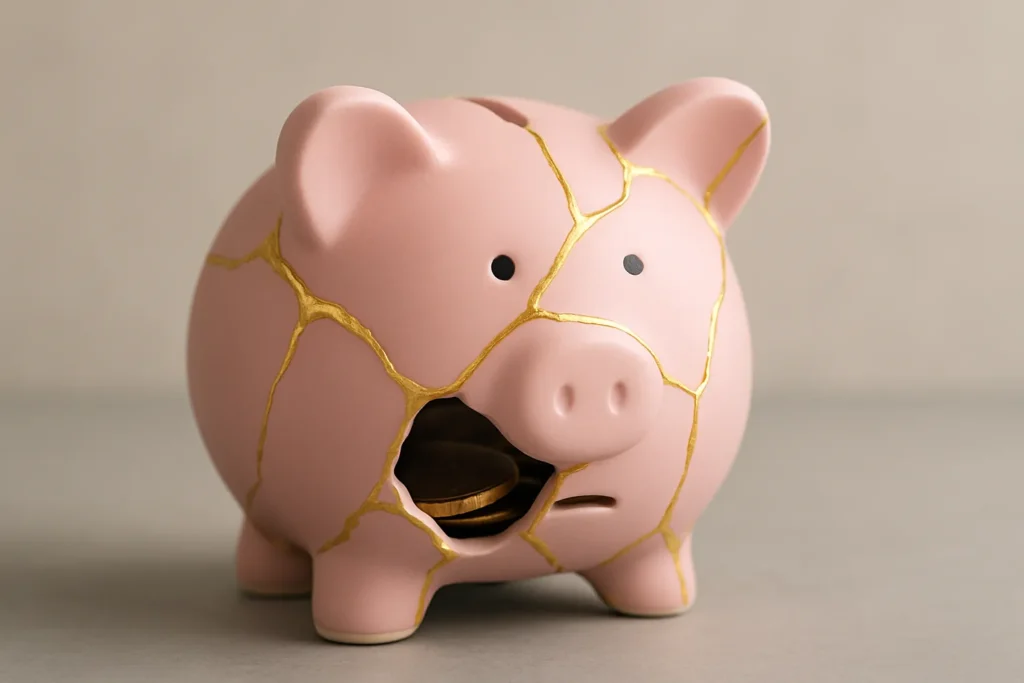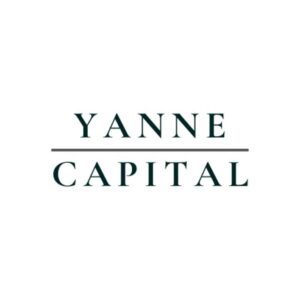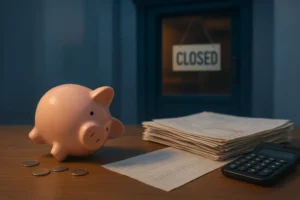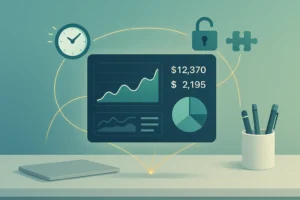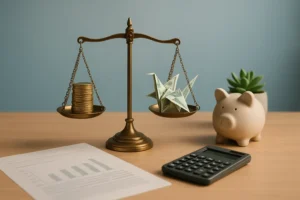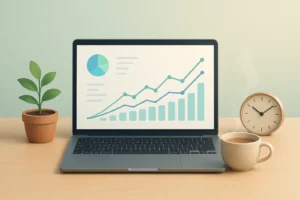Financial setbacks can be challenging, but they often provide valuable lessons for future success. This article presents expert insights on wealth management strategies derived from real-world financial difficulties. Readers will discover practical approaches to rebuild wealth, manage risk, and maintain financial stability in the face of adversity.
- Financial Healing Requires Emotional Intelligence
- Separate Personal and Business Finances
- Plan for Seasonal Cash Flow Fluctuations
- Build Flexibility into Financial Decisions
- Rebuild Wealth One Dollar at a Time
- Implement Rules for Sustainable Investing
- Stay Disciplined During Market Volatility
- Diversify Portfolio to Manage Risk
- Overcome Compulsive Gambling with Technology
- Prioritize Savings for Financial Stability
- Learn from Market Setbacks
Financial Healing Requires Emotional Intelligence
In the world of personal finance, we often focus on numbers: credit scores, savings goals, and debt payoff timelines. But what happens when the real crisis isn’t just financial, but emotional and spiritual?
A few months ago, I experienced a financial setback that redefined my entire relationship with money. As a single mother facing unemployment two years in a row, I hit a breaking point. Despite years of teaching women how to budget, save, and invest, I realized I had never addressed the root of the problem: the emotional and generational patterns shaping my financial decisions.
That moment of rock bottom was a catalyst. I began what I now call a spiritual audit, a deep, internal look at the beliefs I inherited and internalized. I realized financial instability wasn’t just about income gaps or lack of education; it was about unresolved trauma, scarcity thinking, and over-functioning rooted in survival.
This insight led to a complete evolution of my business. I began teaching women not just how to “manage” money, but how to heal their money stories from the inside out. I developed a method that integrates emotional wellness, spiritual alignment, and practical strategy, which I now refer to as financial wholeness.
That financial setback was a turning point. It taught me that resilience isn’t just about bouncing back; it’s about building a new framework entirely. Today, I work with millennial women, especially single moms, to create sustainable financial systems grounded in peace, purpose, and personal power.
In a tech-driven financial world, we can’t afford to leave emotional intelligence and healing off the table. Money is data, yes, but it’s also deeply personal. And when we ignore that, we miss the opportunity to create truly transformational change.
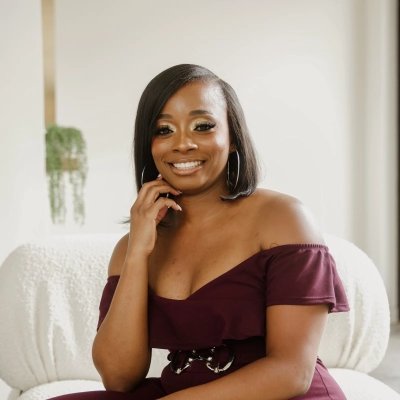 Sha’Kreshia Lewis
Sha’Kreshia Lewis
Personal Finance Educator, Humble Hustle Finance
Separate Personal and Business Finances
Years ago, I made the mistake of tying up most of my personal liquidity in one of my businesses during an expansion push.
On paper, it made sense because the growth potential was real, and I believed in the outcome. However, when a major contract fell through and funding got delayed, I found myself personally overexposed with very few liquid assets to buffer the fallout.
To be honest, it was a humbling wake-up call that blurred the line between my personal and business finances more than it should have.
Since then, I’ve changed how I manage personal wealth entirely. Now, I separate risk layers. I still invest in my companies, but I now protect a personal reserve that’s completely insulated from business volatility. I treat that reserve as a buffer, enough to weather any surprise without having to scramble or liquidate at the wrong time.
That experience taught me that wealth isn’t just about growth but also about resilience. When things go sideways, your ability to stay calm and think clearly often depends on how well you’ve shielded your personal life from business turbulence. I no longer optimize every dollar for returns. Now, I optimize some of them for peace of mind.
 Jeff Mains
Jeff Mains
Founder and CEO, Champion Leadership Group
Plan for Seasonal Cash Flow Fluctuations
We experienced a financial setback early in its growth journey due to my miscalculation of seasonal cash-flow fluctuations. Our hampers, such as “Care Packages” and “Movie Night Hampers,” sell exceptionally well during holidays and gifting seasons, but I had over-committed to inventory when those sales weren’t occurring. I tied up cash needed for marketing, which damaged our growth trajectory.
After some turmoil, I shifted my thinking and treated my personal and business finances separately with a strategic approach. I purposefully set up a buffer fund for the business that essentially operated like my personal wealth — structured, diversified, and intentionally conservative when business was quieter. Additionally, I began modeling the sales forecast based on three years of historical seasonality rather than just year-over-year comparisons.
The major learning point from this experience was that profit is not equivalent to liquidity. Wealth is created through timing, forecasting, and having resilient “shock-absorbers” embedded into your personal and business finances. This new way of thinking not only helped the company grow sustainably but also gave me peace of mind as the founder navigating uncertainty.
For any small business owner reading this, the key takeaway is this: plan for the low periods before you encounter them. Financial resilience begins with humility and data.
 Mary Case
Mary Case
Founder, The Happy Food Company
Build Flexibility into Financial Decisions
A few years ago, I invested heavily in a side venture without fully stress-testing the cash flow assumptions. When unexpected expenses hit and timelines dragged out, I found myself personally covering more costs than planned. The experience was humbling — it taught me that even with a strong vision, overestimating short-term returns while underestimating risk can strain both business and personal finances. I had to restructure some of my personal credit commitments to keep things afloat, and that reset my perspective on liquidity buffers.
Since then, I’ve become laser-focused on building flexibility into every financial decision — both for myself and in what we offer. Today, I always plan for downside scenarios with the same rigor as upside potential. It’s influenced how we design tools for businesses too: giving them more breathing room, using credit card float strategically, and making every dollar work harder through automation and reward points. Financial setbacks are often the best teachers — if you listen, they recalibrate your entire approach.
 David Grossman
David Grossman
Founder & Chief Growth Officer, Lessn
Rebuild Wealth One Dollar at a Time
Through violent crime victimization and my journey through the criminal justice system (12 years), I lost over $1.3 million. I also had to avoid using any credit or bank accounts, as my offender targeted me through such paper trails. As I emerged from trial with a “guilty” verdict, I immediately felt overwhelmed by my journey back to financial wellness, particularly with a credit rating of “0” and no holdings at the age of 50. I started focusing on “one day at a time” and “one dollar at a time.”
In the process, rebuilding has become a fun challenge and an immense source of pride. I may still have fears about having enough money for retirement, but I am progressing toward better peace of mind. I have achieved a healthier state by accepting every opportunity to have a conversation with experts in the financial realm. By being unashamed and honest with them, we are able to target the best products, solutions, and opportunities.
I often wonder if I would be as happy and present as I am today in my financial planning if I had not lost it all. I feel more responsible, determined, mature, and focused than ever before.
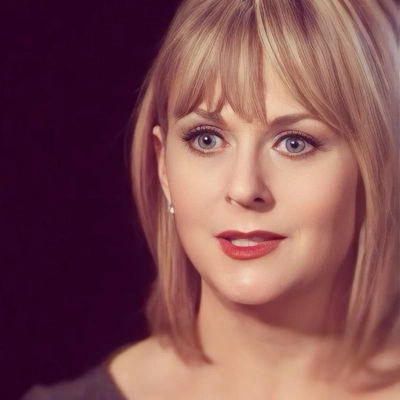 C. Kimberly Toms
C. Kimberly Toms
Chief Executive Officer, Not Just One
Implement Rules for Sustainable Investing
As of 2008, I was in possession of several investment properties, some of which were bought using short-term funding with the expectation that values would continue to rise. When the market turned upside down, I was stuck with holdings that I could not sell. The obligations were piling up, and the value was drifting away. I was forced to sell, to incur losses, and to rethink everything I had thought about liquidity, risk, and time.
So what happened after that? I no longer base my decisions on feelings or trends. I started putting buffers into all the deals, began keeping a six-month reserve on each property, and became very surgical in my underwriting. Cash flow became non-negotiable. Appreciation is a good thing but not a plan. I realized that I can earn more money by being right more often rather than being wrong a few more times despite the extra risk involved.
I still invest, but now there are rules that I cannot break. It does not have to do with what you can earn. It is about how you can maintain your position when there is pressure.
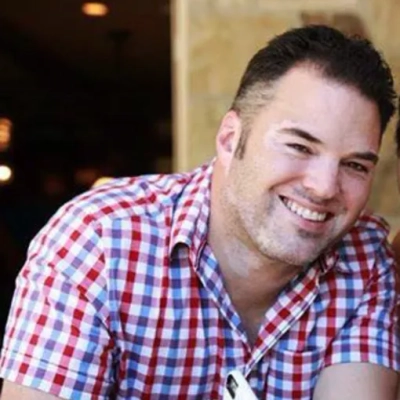 Jimmy Fuentes
Jimmy Fuentes
Consultant, California Hard Money Lender
Stay Disciplined During Market Volatility
Setbacks happen!
One of the most valuable lessons I’ve learned from guiding clients through financial challenges is the importance of having a clear plan and staying disciplined during market volatility. I’ve seen situations where clients felt the urge to react emotionally, selling investments during a market dip, only to miss the recovery that followed.
By creating a thoughtful, diversified strategy upfront, clients are better prepared to ride out market fluctuations without making reactive decisions. I also emphasize the importance of maintaining a healthy cash reserve and regularly reviewing their plan to ensure it aligns with changing life goals.
Setbacks can serve as powerful reminders that short-term noise shouldn’t dictate long-term strategy. When clients trust the plan, stay disciplined, and remain focused on their bigger picture, financial setbacks often become stepping stones to stronger, more resilient wealth.
 Avi Bialo
Avi Bialo
Founder/CEO and Wealth Advisor, Wealth Solutions 360
Diversify Portfolio to Manage Risk
Some years ago, I made very heavy investments in a high-growth tech stock, encouraged by both strong earnings reports and market hype. When regulatory changes came down on the sector, the stock crashed, taking away a huge portion of my portfolio with it.
That experience taught me the grave importance of sector diversification and risk-adjusted allocation methods. Since then, I have developed a habit of following the discipline of modern portfolio theory and regularly rebalancing between asset classes to lower concentration risk. This re-emphasized that the allocation process should never be dictated by emotion. Risk management and long-term strategy must be the guiding forces.
 Nathan Barz
Nathan Barz
Financial Advisor, Management Expert, SEO Founder and CEO, DocVA
Overcome Compulsive Gambling with Technology
Whenever I hear “financial setback,” my mind always goes back to my major troubles from some years ago, and it boils down to compulsive gambling. As a sports enthusiast, it’s always easy to get hooked on betting, and I’d say I was ‘good’ at gambling on football.
My major setback started when I began betting on random sports that I had no idea about, and with time, I wasn’t betting to win anymore; I was just gambling away every penny that was in my account to satisfy that feeling. My salary was enough for me, but with this behavior, everything changed, and I was sinking.
I had to do something. I looked up compulsive gambling and ways to help myself, and luckily for me, there was an app to block betting sites on my device. This app (unnamed) worked for me; I was able to curb my excesses, and with time, I was free from financial setbacks. In fact, I now go weeks without remembering that betting even exists.
 Austin Anadu
Austin Anadu
Medical Doctor, AlynMD
Prioritize Savings for Financial Stability
One financial setback I faced was moving out of my college town after finishing an internship. I had to start over in a new city and quickly find a job to support myself. I ended up taking a position that wasn’t what I wanted, but it helped me cover rent and stay on my feet while I looked for better opportunities that aligned with my career goals. Around the same time, my car started having constant problems, and I eventually had to buy a new one, which added even more financial stress.
That experience changed how I handle my money. Now, whenever I get paid, a percentage of my paycheck goes directly into my savings account. I also track what I spend and try to stay on top of where my money is going. It’s helped me feel more in control and prepared, especially when unexpected costs come up. Looking back, that time was tough, but it pushed me to build better habits and take my financial stability seriously.
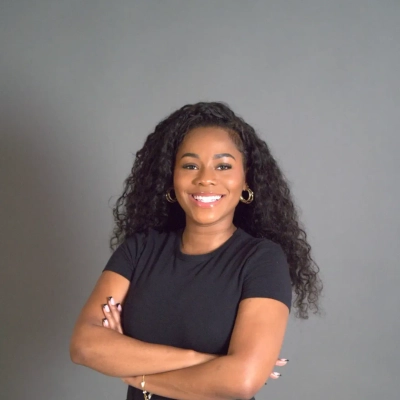 Grace Allen
Grace Allen
Marketing Assistant, Argon Agency
Learn from Market Setbacks
In 2008, many developers made real estate investments that appeared brilliant, right until the financial crisis hit. Property values plummeted, tenants disappeared, and we all learned a very expensive lesson: leverage cuts both ways. That setback hurt the industry severely, but it also reshaped how we approached risk, liquidity, and diversification with recession-resistant assets.
Since then, I have been even more intentional about maintaining cash reserves and stress-testing my investments. When I now help others through their wealth-building journeys, I emphasize planning for the “what-ifs,” not just the best-case scenarios. Setbacks are great teachers if you are willing to listen.
So if you are managing your own wealth and sometimes things do not go according to plan, make sure you have control of your nerves. Reflect, revisit, and keep going. Every strong portfolio is a product of lessons learned in the margins.
 Lon Welsh
Lon Welsh
Founder, Ironton Capital

